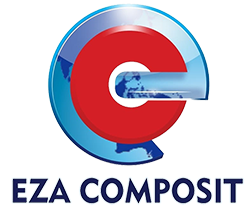Philippine Online Casino Licensing and Regulation
The Philippines boasts a dynamic and closely regulated online casino landscape․ Oversight is primarily managed by PAGCOR (Philippine Amusement and Gaming Corporation), a government body that both operates casinos and issues licenses․ PAGCOR’s authority extends to various gaming activities, including online casinos, ensuring compliance with established rules and regulations․ Alongside PAGCOR, the Cagayan Special Economic Zone Authority also plays a role in licensing and regulating certain online gambling operations․ This dual regulatory structure aims to balance revenue generation with responsible gambling practices․
PAGCOR (Philippine Amusement and Gaming Corporation)
PAGCOR (Philippine Amusement and Gaming Corporation) is the central authority for gambling regulation in the Philippines․ It holds a dual role, both operating casinos and overseeing the licensing of private operators, including online casinos․ PAGCOR issues licenses, sets regulations, and collects taxes from gambling operations․ This revenue is then channeled to various government initiatives․ As regulator, PAGCOR aims to ensure fair gaming practices, combat illegal gambling, and promote responsible gaming within the country․
Cagayan Special Economic Zone Authority
The Cagayan Special Economic Zone Authority (CEZA) represents a distinct regulatory body within the Philippines, specifically focused on the Cagayan Freeport․ CEZA independently licenses and regulates interactive gaming operations within this zone, including online casinos catering to players outside the Philippines․ This authority provides an alternative licensing pathway to PAGCOR, offering a separate framework for online gambling operations․ CEZA’s focus contributes to the overall complexity of online gambling regulations in the Philippines․
Offshore Gaming Licenses (POGOs)
Philippine Offshore Gaming Operators (POGOs) are online gambling companies licensed by PAGCOR to operate and offer their services exclusively to players located outside the Philippines․ These licenses allow companies to base their operations within the Philippines while targeting international markets․ POGOs have become a significant part of the Philippine gaming industry, contributing to revenue generation and employment․ However, they are also subject to specific regulations and scrutiny to ensure compliance and responsible gambling practices․ This licensing category highlights the Philippines’ role as a hub for online gambling services․
Interactive Gaming Act, 2003
The Interactive Gaming Act of 2003 provides the legal framework for online gambling in the Philippines․ This legislation established PAGCOR’s authority to regulate and license online gaming activities․ The Act aims to control and supervise interactive gaming, ensuring fair play, responsible operator conduct, and the generation of government revenue․ It also addresses concerns related to money laundering and other potential illicit activities associated with online gambling․ This law forms the foundation for the licensing and regulation of online casinos in the Philippines․
Gambling Laws and Regulations in the Philippines
Philippine gambling laws are complex, aiming to balance revenue generation with social responsibility․ PAGCOR plays a central role, regulating and licensing various forms of gambling, including casinos, both land-based and online․ Separate regulations exist for different regions, like the Cagayan Special Economic Zone․ Laws address licensing, taxation, anti-money laundering measures, and player protection․ The legal landscape continues to evolve, adapting to the growth of online gambling and aiming to mitigate potential risks․ These regulations strive to create a fair and transparent gaming environment․
Licensing Requirements and Processes
Obtaining a gambling license in the Philippines involves a stringent process overseen by PAGCOR․ Applicants must submit extensive documentation, including incorporation papers and financial records․ A thorough background check is conducted on the company and key personnel․ The regulatory review assesses the applicant’s operational plan, security measures, and adherence to responsible gaming practices․ The process can be time-consuming, often taking several months․ Successful completion leads to the issuance of a license, permitting the operator to offer gambling services within the Philippines’ regulatory framework․
Legal Risks and Compliance
Operating an online casino in the Philippines requires strict adherence to a complex legal framework; Non-compliance with PAGCOR’s regulations can lead to severe penalties, including license revocation․ Operators face potential legal risks related to jurisdictional conflicts, particularly when serving international players․ Anti-money laundering (AML) compliance is crucial, and operators must implement robust measures to prevent illicit financial activities․ Data privacy and security are also paramount, with stringent requirements for protecting player information․ Navigating these legal and regulatory complexities is essential for maintaining a legitimate and sustainable online casino operation․
Casino Regulatory Manuals
PAGCOR provides comprehensive regulatory manuals for casino operators, including those offering online services․ These manuals outline detailed rules and procedures for licensing, operations, and compliance․ A key document is the Casino Regulatory Manual, which covers various aspects of casino management, including game rules, security protocols, and anti-money laundering measures․ These manuals serve as essential guides for operators, helping them navigate the complexities of the Philippine gambling industry and maintain adherence to the required standards․ Staying updated with the latest versions of these manuals is crucial for ensuring ongoing compliance and mitigating legal risks․
Electronic Gaming Licensing Department (EGLD)
Within PAGCOR, the Electronic Gaming Licensing Department (EGLD) plays a crucial role in regulating online gambling operations․ The EGLD oversees various forms of electronic gaming, including e-casinos, e-bingo, sports betting, and other online games of chance․ This department is responsible for issuing licenses to operators, ensuring compliance with regulations, and monitoring the activities of licensed entities․ The EGLD’s focus on electronic gaming highlights the growing importance of this sector within the Philippine gambling market and the government’s efforts to regulate it effectively․
Offshore Gambling Sites and Their Regulation
Offshore gambling sites, licensed outside the Philippines, cater to international players but are prohibited from offering services to Filipinos․ Primarily licensed by the Cagayan Economic Zone Authority, these sites operate under different regulations than those within the Philippines․ While Filipinos are restricted from accessing these sites, their presence highlights the global nature of online gambling and the distinct regulatory frameworks governing different jurisdictions․ This separation ensures that Philippine regulations focus on protecting their citizens while acknowledging the existence of external online gambling operations․


Leave a Reply
Want to join the discussion?Feel free to contribute!